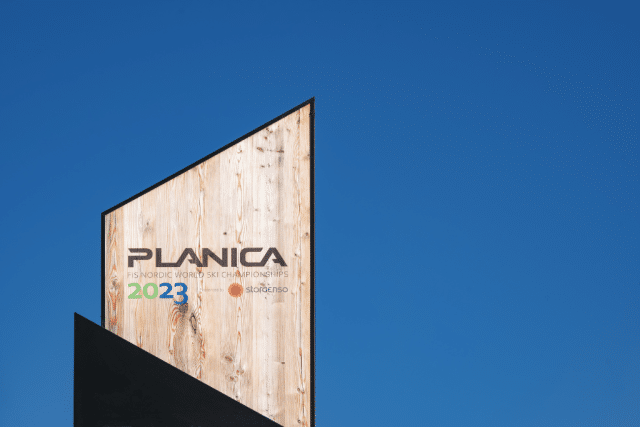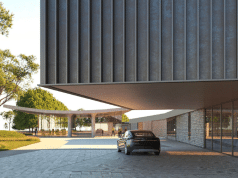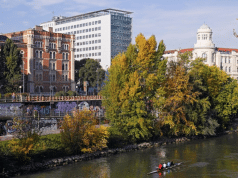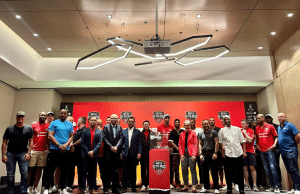OVERPROMISING?
This week, the legendary Planica is hosting the FIS Nordic World Ski Championships 2023. Professional athletes inspire and electrify the audience with incredible achievements and are understandably in the limelight. They deserve the utmost respect, as do the organisers of one of the most significant sports events in the history of Slovenia.
Compliments have been pouring from left, right and centre. Key stakeholders, athletes, press, volunteers and visitors said the atmosphere is unparalleled. Likewise, the venues, the VIP zone, hospitality, and infrastructure have proven brilliant.
Slovenia has showcased its excellence in hosting international events at the highest level. I am convinced that analyses will show that Planica achieved most of its ten goals. The only drawback of the megaevent lies in the fewer visitors attending Planica, at least according to public discourse in Slovenian media. Still, thousands of fans watching at home were not disappointed.
A textbook example of a sustainable event
In the shadow of the exceptional sports event, the behind-the-scenes team organise Planica as a textbook example of a sustainable event. Together with their partners and Umanotera, Planica is blazing the trail for other global sports events that wish to make a sustainable transformation. The project named “Čista zmaga,” executed by Umanotera in Planica in 2023, was a pioneering campaign on an international scale. In the words of the Slovenian NGO, such events provide an opportune time to showcase sustainable practices and spread awareness among individuals, organisations and society. With such projects, event organisers proactively address the climate and environmental crises and tackle societal challenges. The organisers in Planica went the extra mile this year by preparing a sustainable pledge for Planica 2023 and a sustainable action plan. The latter includes 22 goals in six core segments: social responsibility, mobility, waste, venues, communciation and legacy. During the event, they also hosted a roundtable on sustainable events and, most importantly, measured the carbon footprint of Planica in cooperation with ClimatePartner.
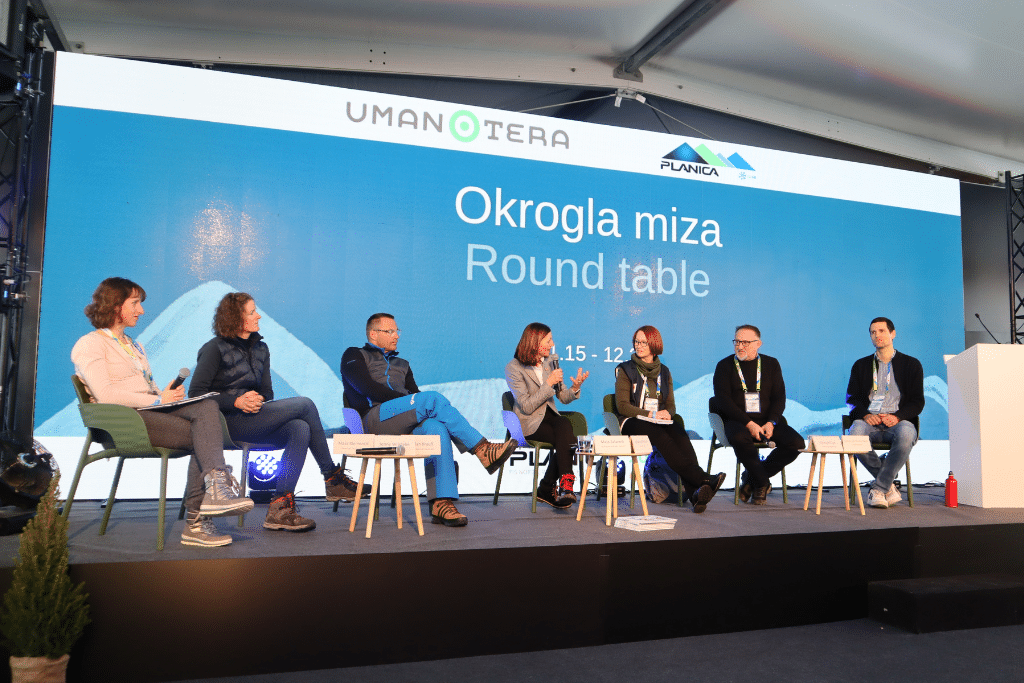
Speakers at the roundtable on sustainability agreed that: “there is no time for making small green cosmetic corrections when organising events, but high time to take necessary actions. We live in a time when we must organise events more sustainably.”
To achieve sustainable goals, we must understand events as BOOSTERS of development in every segment. If we look at the sports side, we hope sustainable tourism continues to develop in Planica after the event. We also hope Planica encourages young people to stop looking at their phones and start showing interest in ski jumping and nordic skiing. When we talk about scientific events, the goal is to develop as many innovative scientific ideas as possible. And if we look at the economic aspect, the goal is to have as many unicorns as possible after a business event.
An event like Planica is undoubtedly well organised. From a sports perspective, Planica is a world-class event and a roadmap for future sustainable events. The principle and idea of sustainability will attract locals to Planica in the future if the message is SIMPLE, CLEAR and INCLUSIVE.
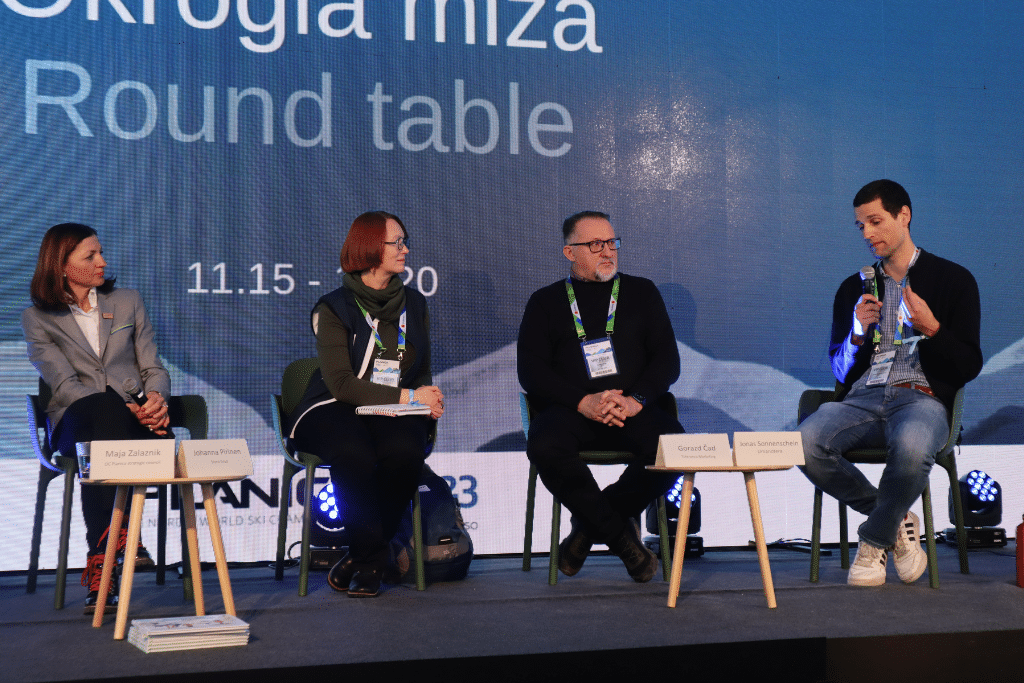
There are numerous aspects of organising Planica that contradict the paradigm of sustainable event organisation. Enormous prefabricated buildings must be heated throughout the event, and organisers must ensure diesel-powered generators never run out of fuel. At the same time, energy use skyrockets during the event. Countless volunteers should be rewarded for their invaluable effort, and merchandise could have more local and Slovenian motifs. Avoiding the mentioned situations when organising such an enormous and complex event is impossible. Personally, I do not see such situations as a form of greenwashing.
I absolutely agree with Gašper Pavli, who stressed that organising events sustainably is a neverending process of learning and improving. Gašper Pavli is the Creative Director of Sport Media Focus and Sustainability Coordinator of the Women’s EHF EURO 2022, one of the largest international sports events ever hosted in Slovenia.
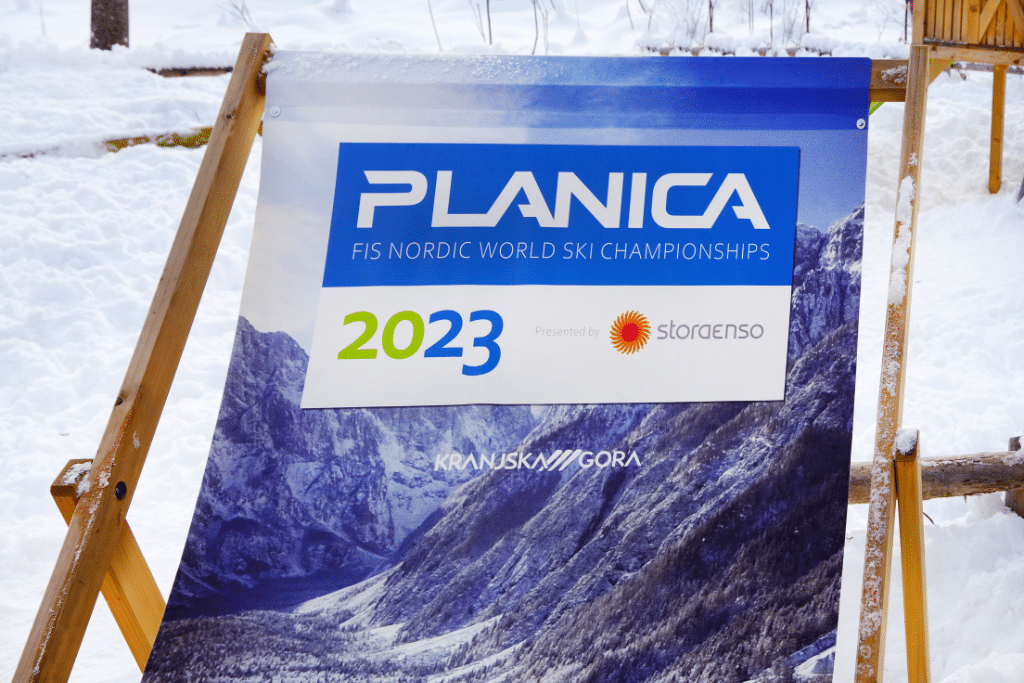
It seems apparent that transparency and clear communication is crucial in this segment. I hope that we will soon start evaluating events based on their sustainability. That means that an event will be segmented into categories, such as A, B, and C, just like electronic devices. Of course, we have a long way to go. But that does not mean planting trees, which is a common way of compensating for the carbon footprint of events. Planting trees is often used for greenwashing, and the reason why is straightforward. Planting trees is very simple, but organising sustainable events is not. Everything that is factually sustainable takes a lot of knowledge, effort and energy.
In the past week, I was tremendously proud that Slovenia made a quantum leap in sustainability. Given most of the world is focused on spreading awareness about sustainability, Slovenia is one of the first countries to go from words to actions. The experience of Slovenian event organisers in sustainability is priceless. It fills me with pride to know Slovenia has become a pioneering think tank for innovations in sustainability. In the spirit of sportsmanship, I believe that Slovenia is currently among the leading sporting nations globally.
I have no doubts Planica will prompt an initiative to organise events that cause as little negative environmental impact as possible and facilitate countless benefits for the local community. Most importantly, Planica has helped raise the prominence of athletes, who should always be in the limelight during such events.
Green Planica – is Planica completely green or carbon-neutral, as some say?
Green is one of the most used and misused words in event organising. Many things can be green: pledges, destinations, investments, marketing, technologies and catering or events.
In terms of event organising, the discussion about carbon-neutral or green events is pointless. Can an event be completely carbon-neutral? That is a miscalculation which is crystal clear to all event organisers. The disillusion of carbon neutrality is even more evident after measuring the carbon footprint of an event. The term green event is the most misleading and misused form of greenwashing in event organising. It is more apt to say an event is responsible towards the environment or society. Naming the segments addressed by sustainable measures as green is much more fitting. The same can be applied to catering, which should be environment-friendly instead of green. Therefore, I would kindly advise event organisers in Planica to find a more suitable word to summarise their sustainable aspirations in the future.
Article by Gorazd Čad


